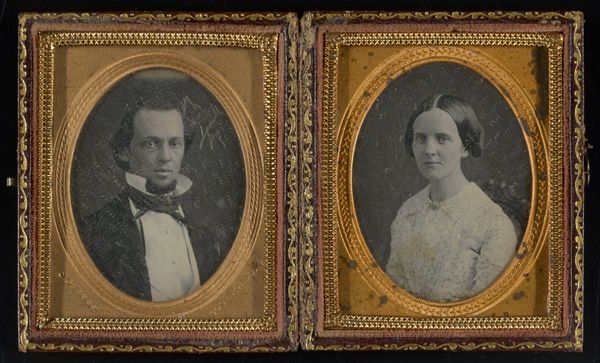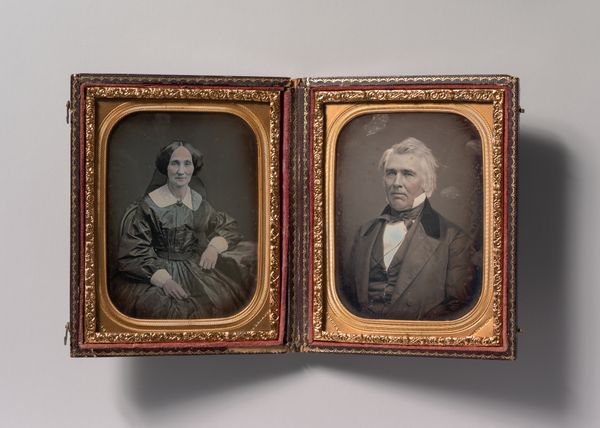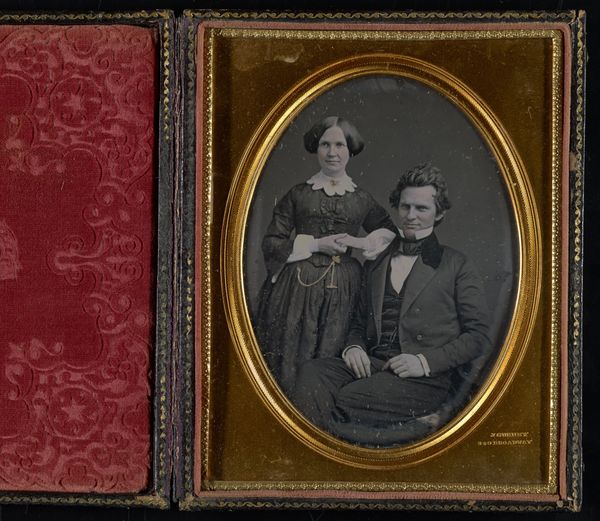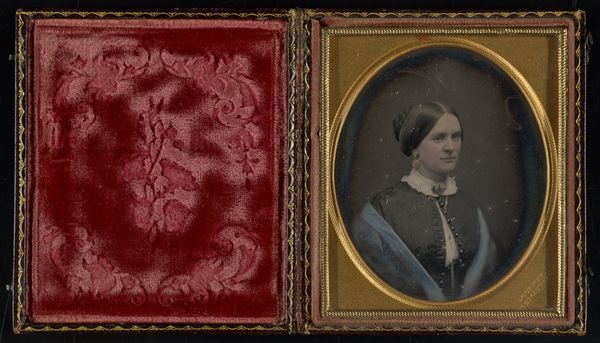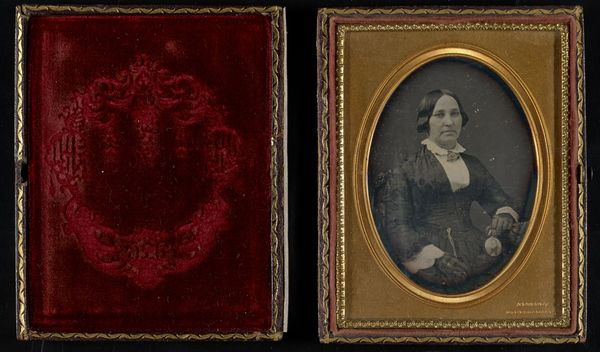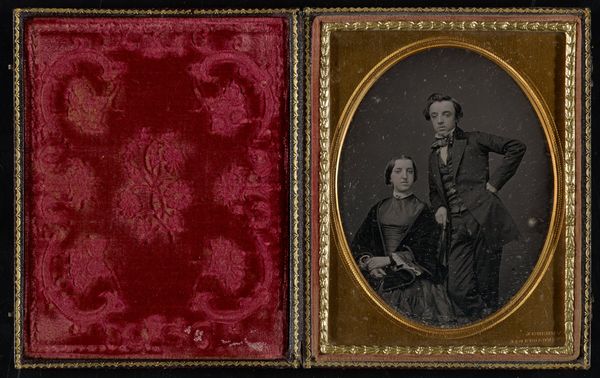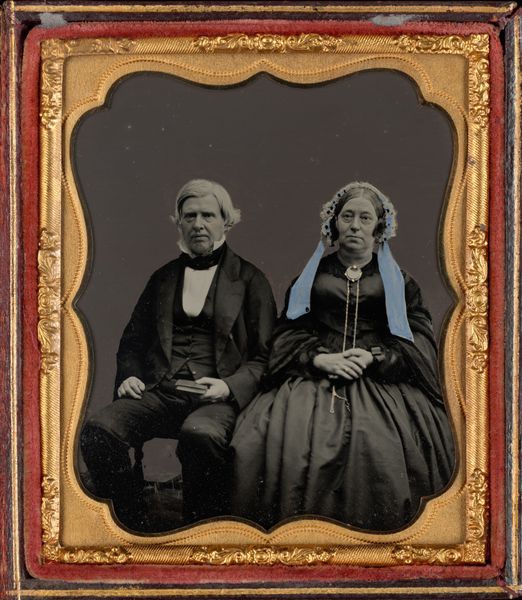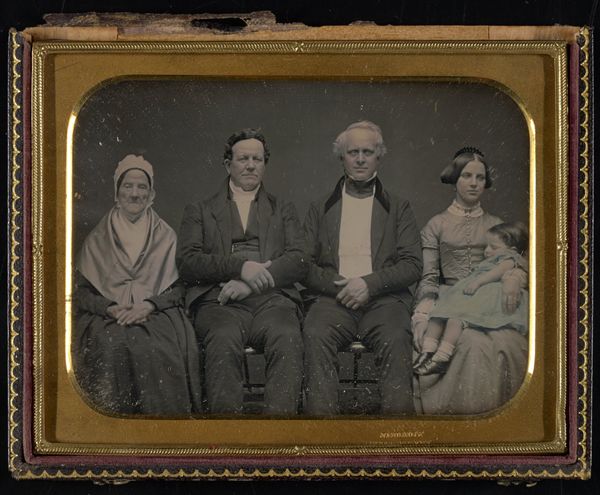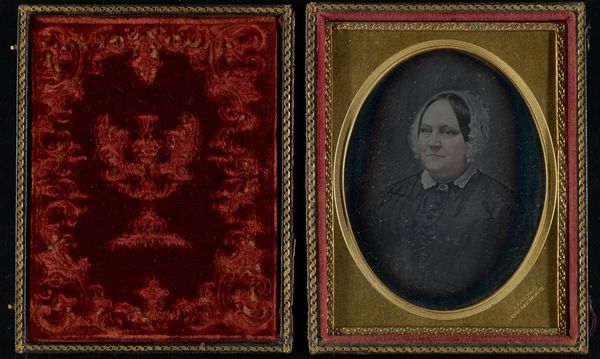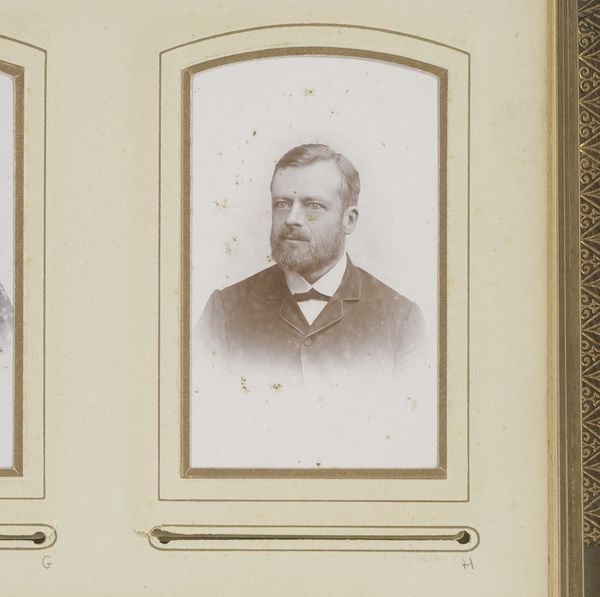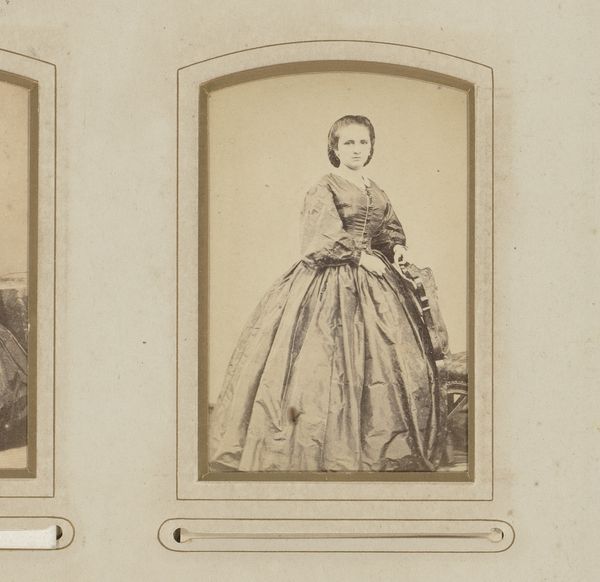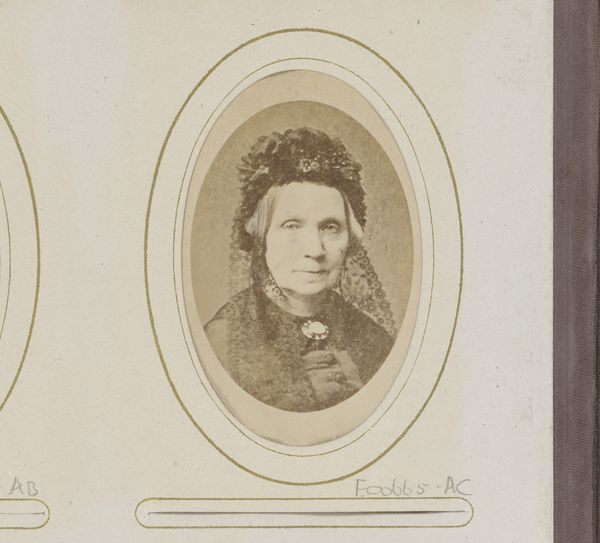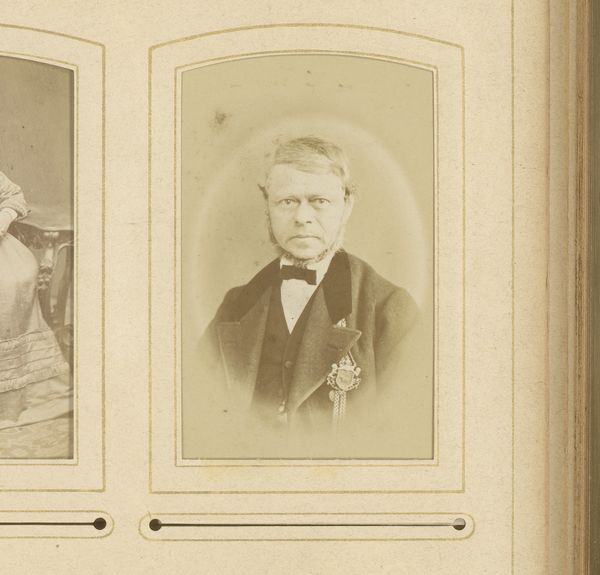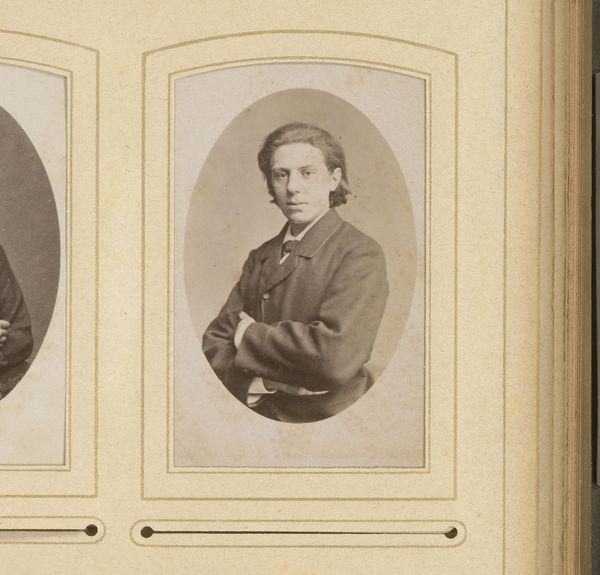![Untitled [pair of portraits of a man and of a woman] by Jeremiah Gurney](/_next/image?url=https%3A%2F%2Fd2w8kbdekdi1gv.cloudfront.net%2FeyJidWNrZXQiOiAiYXJ0ZXJhLWltYWdlcy1idWNrZXQiLCAia2V5IjogImFydHdvcmtzLzE3MjE4OTRkLTEyYzYtNGNlZC05ZTM2LTRkNmFiYmE0ODQwMC8xNzIxODk0ZC0xMmM2LTRjZWQtOWUzNi00ZDZhYmJhNDg0MDBfZnVsbC5qcGciLCAiZWRpdHMiOiB7InJlc2l6ZSI6IHsid2lkdGgiOiAxOTIwLCAiaGVpZ2h0IjogMTkyMCwgImZpdCI6ICJpbnNpZGUifX19&w=3840&q=75)
Untitled [pair of portraits of a man and of a woman] 1852 - 1858
0:00
0:00
daguerreotype, photography
#
portrait
#
16_19th-century
#
sculpture
#
daguerreotype
#
photography
#
brown and beige
#
united-states
#
neutral brown palette
#
realism
Dimensions: 5 1/2 x 4 1/4 in. (13.97 x 10.8 cm) (image, each)6 x 4 13/16 x 7/8 in. (15.24 x 12.22 x 2.22 cm) (mount)
Copyright: Public Domain
These portraits were made by Jeremiah Gurney, a prominent New York photographer, using the daguerreotype process. This early photographic technique involved coating a silvered copper plate with light-sensitive chemicals, exposing it in a camera, and then developing the image with mercury vapor. The resulting image is a unique, highly detailed, and delicate object with a mirror-like surface. The silvery quality of the portraits gives them an ethereal appearance, while the process itself required specialized knowledge and equipment, making it an expensive luxury. Gurney's success as a photographer reflects the rising demand for portraiture during the 19th century, driven by the growing middle class and their desire to document their lives and present themselves to the world. Photography was a burgeoning industry, and the labor involved, from preparing the plates to posing the sitters, contributed to a complex social and economic landscape. Recognizing photography as a blend of science, art, and commerce helps us appreciate its cultural significance beyond mere representation.
Comments
No comments
Be the first to comment and join the conversation on the ultimate creative platform.
